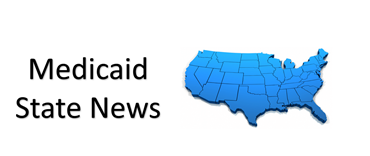MM Curator summary
Efforts to increase governance on payments in the “personal care services” benefit in NY Medicaid have met opposition.
The article below has been highlighted and summarized by our research team. It is provided here for member convenience as part of our Curator service.
ALBANY — Under a policy pushed by Gov. Andrew M. Cuomo, the administration of a popular program that allows Medicaid recipients to receive at-home health care for loved ones was interrupted for more than 100,000 New Yorkers.
Now, Democrats in the Legislature are pushing for a delay in that policy’s implementation through negotiations over the state budget.
The Consumer Directed Personal Assistance Program (CDPAP) is a state-run program paid for through federal Medicaid funds. It allows people to pay for at-home health care service through a middleman known as a “Financial Intermediary” (FI), rather than sending the person in need of care to a dedicated facility. The FI handles the payment and logistics of the arrangement.
CDPAP also allows people in the program to choose the person who will be providing care. For instance, Patience Gabbidon, 19, lives in the Capital Region and is paid $12.50 an hour to care for her grandmother, who has diabetes and chronic issues with her eyesight. Gabbidon said she cleans her grandmother’s house, runs errands for her, checks her blood sugar and makes sure she takes her medication on time.
“She’s getting older now and it’s getting harder for her to move or get outside, and she gets tired — so I help her around the house,” Gabbidon said.
In a February budget hearing before the Legislature, a staffer from the state Health Department said 139,000 New Yorkers use the program.
“Patients who might have refused home health care because they don’t want some stranger in their home are much more willing to use the consumer-directed program,” said Richard Gottfried, chair of the Assembly Health Committee. “The state health department has tried through a variety of efforts to dramatically cut down on the program.”
Cuomo asked for and was given authority as part of the 2019 budget negotiation to exercise tighter state oversight of FIs. His administration’s argument is that this ensures rules are followed, waste is reduced, and the program is better monitored overall.
“What the health department hates about the consumer-directed program is precisely that it is very popular,” Gottfried said, adding that Cuomo would like to cut costs and exert more control over CDPAP.
DOH now requires FIs to reapply for the program, which led to a culling of their number from more than 450 to 68, according to Jonah Bruno, an agency spokesman — a reduction of more than 80 percent. Without an FI, people could lose service. Bruno said the FIs that have now been vetted by the health department “will be able to ensure consumer choice and access in each county across the state.”
In the February hearing, Assemblywoman Pam Hunter said that in Onondaga County — with a population higher than 350,000 — there was not a single FI awarded. She said while there had been a measure of waste and abuse among the FIs, “it makes no sense” to have zero in the whole county.
“So many of the organizations, the not-for-profits that have provided this crucial service to many of our most vulnerable … were not rewarded,” Hunter said.
Other lawmakers expressed concerns that the process for deciding who could remain as FIs was opaque and too restrictive. Under a standalone bill pushed by Gottfried, the full 450 previously approved FIs would be able to continue through 2022, while those that applied to DOH and were denied would be reconsidered.
This delay was also included in the state Senate’s proposal for the budget, staking out that chamber’s negotiating position. A letter sent last week, signed by 59 Democrats in the Assembly, called for the delays to be supported by that chamber as well.
“The governor’s people have been resisting what we’re trying to do,” Gottfried said. “Without going into details partly, because they change practically by the hour, there is some openness on the governor’s side to reexamining, to doing something like what legislators have been advocating.”
The ostensible deadline for the state to pass a budget is Wednesday.
Clipped from: https://www.timesunion.com/news/article/Legislature-pushes-back-on-Cuomo-policy-to-16061369.php

